|
Books Should Be Free Loyal Books Free Public Domain Audiobooks & eBook Downloads |
|
|
Books Should Be Free Loyal Books Free Public Domain Audiobooks & eBook Downloads |
|
History Books |
|---|
|
Book type:
Sort by:
View by:
|
By: Moses Maimonides (1138-1204) | |
|---|---|
 Guide for the Perplexed, Part One
Guide for the Perplexed, Part One
The Guide for the Perplexed by Mūsá ibn Maymūn is regarded as one of the most important works of Medieval Jewish thought. The book attempted to harmonize the philosophy of Aristotle with the Rabbinical teachings, but was regarded by many at the time as antithetical to Jewish theology, despite its earnest arguments in vindication of the ways of God. - Summary by Daniel Davison | |
By: Mrs. Cecil Hall | |
|---|---|
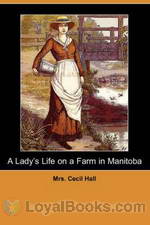 A Lady's Life on a Farm in Manitoba
A Lady's Life on a Farm in Manitoba
The nineteenth century was marked by intense colonization by countries like Britain, France, Portugal, Spain and the Netherlands. Initially, the pioneering efforts were made by men who battled unfamiliar terrain to create territories that they marked out as their own, while their wives, mothers, sisters and daughters kept the home and hearth in their native land. However, with travel becoming more common and family life assuming more importance, the women too began to travel to the four corners of the earth... | |
By: Mrs. Eugenia Dunlap Potts (1840-1912) | |
|---|---|
 Historic Papers on the Causes of the Civil War
Historic Papers on the Causes of the Civil War
While claiming to be historical papers on the causes of the United States Civil War, the author indulges in some Slavery Apologetics. An interesting view from a southern lady on what caused the war and why the south was the underdog. | |
By: Mrs. Philip Snowden (1881-1951) | |
|---|---|
 Political Pilgrim in Europe
Political Pilgrim in Europe
Written in the aftermath of Word War I, Viscountess Snowden recounts her travels in post war Europe in, as she describes it, "an attempt to do what one person might do, or at least attempt, to restore good feeling between the nations and the normal course of life as quickly as possible." An outspoken pacifist, socialist, and feminist who nonetheless strongly denounced the Bolsheviks, Snowden was a controversial and polarizing figure. whose views and observations offer a unique perspective on Europe in the '20s. - Summary by Ciufi Galeazzi | |
By: Muriel O. Davis | |
|---|---|
 Political History of France, 1789-1910
Political History of France, 1789-1910
This little book opens on the eve of the French Revolution. The government is crippled by financial mismanagement, ruled by a King who, in the author's words, is "devoid of both ability and energy," and resented by a tax-oppressed peasantry and a rising middle class. The Revolution escapes the control of its instigators and France is plunged into the Terror and international war. Enter Napoleon, a man with "an enormous capacity for work," who can "get to the root of a matter and master technicalities with great swiftness," but whose "vulgar desire for recognition... | |
By: Mykhailo Hrushevsky (1866-1934) | |
|---|---|
 Historical Evolution of the Ukrainian Problem
Historical Evolution of the Ukrainian Problem
A short history of Ukrainian national aspirations, written by one of the most prominent Ukrainian historians. Published in the early months of World War I. - Summary by Kazbek | |
By: N. E. Dionne (1848-1917) | |
|---|---|
 The Makers of Canada: Champlain
The Makers of Canada: Champlain
A biography of Samuel de Champlain, French explorer, founder of Quebec, and father of New France. ( | |
By: Nat Love (1854-1921) | |
|---|---|
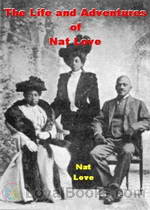 The Life and Adventures of Nat Love, Also Known As Deadwood Dick
The Life and Adventures of Nat Love, Also Known As Deadwood Dick
Nat Love was born a slave, emancipated into abject poverty, grew up riding the range as a cowboy and spent his maturity riding the rails as a Pullman Porter. For me, the most amazing thing about him is that despite the circumstances of his life, which included being owned like a farm animal solely because of the color of his skin and spending later decades living and working as an equal with white coworkers, he was an unrepentant racist! Convinced that the only good Indian was a dead one, and that... | |
By: Nathaniel Hawthorne (1804-1864) | |
|---|---|
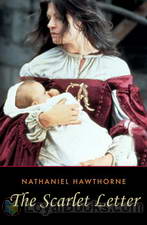 The Scarlet Letter
The Scarlet Letter
A beautiful woman who is punished for the mortal sin of loving a man other than her husband, a cowardly lover, a vengeful husband, a rebellious illegitimate child and the oppressive and patriarchal morality of 17th century Puritanism in Boston. Together these form an unforgettable and thought-provoking glimpse of how much social attitudes have changed over the centuries. Nathaniel Hawthorne was the creator of such beloved works as Twice-Told Tales, A Wonder Book for Boys and Girls, The House of the Seven Gables and spine-chilling tales like Roger Malvin's Burial... | |
By: National Advisory Commission on Civil Disorders | |
|---|---|
 Report of the National Advisory Commission on Civil Disorders (Kerner Commission Report)
Report of the National Advisory Commission on Civil Disorders (Kerner Commission Report)
The summer of 1967 again brought racial disorders to American cities, and with them shock, fear and bewilderment to the nation. The worst came during a two-week period in July, first in Newark and then in Detroit. Each set off a chain reaction in neighboring communities. On July 28, 1967, the President of the United States [Lyndon B. Johnson] established this Commission and directed us to answer three basic questions: What happened? Why did it happen? What can be done to prevent it from happening again? This is our basic conclusion: Our nation is moving toward two societies, one black, one white--separate and unequal... | |
By: Neil Munro (1863-1930) | |
|---|---|
 Doom Castle
Doom Castle
Doom Castle is the story of young Count Victor's journey to Scotland after the Jacobite Rebellion, searching for a traitor to the Jacobite cause as well as a mysterious man under the name of "Drimdarroch", whom he swore revenge. After a perilious journey, Count Victor arrives at Doom Castle as a guest of the enigmatic Baron of Doom, his two strange servitors and his beautiful daughter... (Summary by Carolin) | |
By: Nellie McClung (1873-1951) | |
|---|---|
 In Times Like These
In Times Like These
" Believing that the woman's claim to a common humanity is not an unreasonable one, and that the successful issue of such claim rests primarily upon the sense of fair play which people have or have not according to how they were born, and Therefore to men and women everywhere who love a fair deal, and are willing to give it to everyone, even women, this book is respectfully dedicated by the author." | |
By: Nennius | |
|---|---|
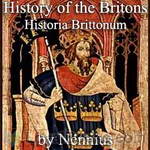 History of the Britons (Historia Brittonum)
History of the Britons (Historia Brittonum)
Although the origin of this book is much debated it remains, perhaps, one of the earliest recorded histories of Britain. It was believed that Nennius wrote the book around 796AD. If indeed he wrote this record, Nennius is recognised as being a teller, and embellisher, of historic characters and events.This book remains notable however, as one of the earliest that mention Arthur (The King of Arthurian legend). | |
By: Niccolò Machiavelli (1469-1527) | |
|---|---|
 History of Florence and of the Affairs of Italy
History of Florence and of the Affairs of Italy
History of Florence and of the Affairs of Italy is an historical account by Niccolò Machiavelli. Toward the end of 1520, the Cardinal Giulio of Medici, later Pope Clement VII, offered Machiavelli the appointment to write a history of Florence. Although Machiavelli was reluctant to accept, accepting was his only way to regain the good graces of the Medici who had regained power and were in a position to offer him employment and protection. Doing the history also provided a way for Machiavelli’s views to become the “official” history of Florentine and Italian affairs. Once completed, the work was presented officially to Giulio, now Pope, in May of 1526. | |
By: Nicholas Canzona (1925-1985) | |
|---|---|
 U. S. Marine Operations in Korea 1950-1953, Volume 1: The Pusan Perimeter
U. S. Marine Operations in Korea 1950-1953, Volume 1: The Pusan Perimeter
It meant little to most Americans on 25 June 1950 to read in their Sunday newspapers that civil strife had broken out in Korea. They could hardly have suspected that this remote Asiatic peninsula was to become the scene of the fourth most costly military effort of American history, both in blood and money, before the end of the year. With a reputation built largely on amphibious warfare, Marines of the 1st Brigade were called upon to prove their versatility in sustained ground action. On three separate occasions within the embattled Perimeter—south toward Sachon and twice along the Naktong River—these Marine units hurled the weight of their assault force at the enemy... | |
By: Noah Davis (b. 1804) | |
|---|---|
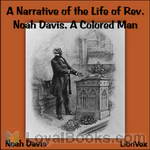 A Narrative of the Life of Rev. Noah Davis, A Colored Man
A Narrative of the Life of Rev. Noah Davis, A Colored Man
The object of the writer, in preparing this account of himself, is to RAISE SUFFICIENT MEANS TO FREE HIS LAST TWO CHILDREN FROM SLAVERY. Having already, within twelve years past, purchased himself, his wife, and five of his children, at a cost, altogether, of over four thousand dollars, he now earnestly desires a humane and Christian public to AID HIM IN THE SALE OF THIS BOOK, for the purpose of finishing the task in which he has so long and anxiously labored. God has blessed him in an extraordinary... | |
By: Notker the Stammerer | |
|---|---|
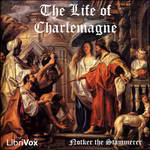 The Life of Charlemagne (Notker)
The Life of Charlemagne (Notker)
Notker’s work consists of anecdotes relating chiefly to the Emperor Charlemagne and his family. It was written for Charles the Fat, great-grandson of Charlemagne, who visited Saint Gall in 883. It has been scorned by traditional historians, who refer to the Monk as one who “took pleasure in amusing anecdotes and witty tales, but who was ill-informed about the true march of historical events”. However, several of the Monk’s tales, such as that of the nine rings of the Avar stronghold, have been used in modern biographies of Charlemagne. | |
By: Okakura Kakuzo (1863-1913) | |
|---|---|
 The Book of Tea
The Book of Tea
The Book of Tea was written by Okakura Kakuzo in the early 20th century. It was first published in 1906, and has since been republished many times. – In the book, Kakuzo introduces the term Teaism and how Tea has affected nearly every aspect of Japanese culture, thought, and life. The book is noted to be accessibile to Western audiences because though Kakuzo was born and raised Japanese, he was trained from a young age to speak English; and would speak it all his life, becoming proficient at communicating his thoughts in the Western Mind... | |
By: Olive Gilbert (?-?) & Sojourner Truth (1797-1883) | |
|---|---|
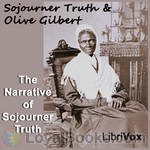 The Narrative of Sojourner Truth
The Narrative of Sojourner Truth
The Narrative of Sojourner Truth is the gripping autobiographical account of Sojourner Truth's life as a slave in pre-Civil War New York State, and her eventual escape to Freedom. Since Sojourner could neither read or write, she dictated her story to Olive Gilbert after they met at a Women’s Rights rally. The Narrative was first published in 1850, and was widely distributed by the Abolitionist Movement. It was one of the catalysts for the rise of anti-slavery public opinion in the years leading up to the Civil War... | |
By: Olive Schreiner (1855-1920) | |
|---|---|
 Thoughts on South Africa
Thoughts on South Africa
'Thoughts on South Africa' is a collection of Schreiner's observations of colonial South Africa in the early 19th century, mostly regarding Boer-English relations. The book was published posthumously in 1923. Prospective listeners should be aware that it reflects the place, culture and language of the time in which it was written. | |
By: Oliver Lodge (1851-1940) | |
|---|---|
 Pioneers of Science
Pioneers of Science
This book takes its origin in a course of lectures on the history and progress of Astronomy arranged for Sir Oliver Lodge in the year 1887. The first part of this book is devoted to the biographies and discoveries of well known astronomers like Copernicus, Brahe, Kepler, Galileo and Newton. In the second part, the biographies take a back seat, while scientific discoveries are discussed more extensively, like the discovery of Asteroids and Neptune, a treatise on the tides and others. | |
By: Oliver Optic | |
|---|---|
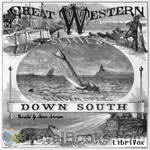 Down South or Yacht Adventure in Florida
Down South or Yacht Adventure in Florida
"Down South" is the fifth and last volume but one of the "Great Western Series." The action of the story is confined entirely to Florida; and this fact may seem to belie the title of the Series. But the young yachtsman still maintains his hold upon the scenes of his earlier life in Michigan, and his letters come regularly from that State. If he were old enough to vote, he could do so only in Michigan; and therefore he has not lost his right to claim a residence there during his temporary sojourn in the South... | |
 Haste and Waste; The Young Pilot of Lake Champlain
Haste and Waste; The Young Pilot of Lake Champlain
The sixth and last volume of the Woodville stories contains the record of a mechanical, rather than a moral triumph, though the virtues of patience and perseverance are incidentally illustrated, and the "little captain" of the Woodville is always a good son, a forbearing brother, and a kind friend. Lawry Wilford, the young pilot, is a boy of spirit and energy, who overcomes difficulties by a strong faith in himself, and redeems his family from poverty, in spite of the bad example and the bad conduct of his father and his older brother... | |
By: Oliver Wendell Holmes, Sr. (1809-1894) | |
|---|---|
 My Hunt After 'The Captain'
My Hunt After 'The Captain'
Holmes describes his frantic search through Civil War torn landscapes for his wounded son, the future Supreme Court Justice. Originally published in The Atlantic Magazine, 1862. Holmes, Sr. (1809 -1894) was an American physician, poet, professor, lecturer, and author. He was regarded by his peers as one of the best writers of the 19th century. His most famous prose works are the "Breakfast Table" series, which began with The Autocrat of the Breakfast Table (1858). He is also recognized as an important medical reformer. | |
By: Osborne Perry Anderson (1830-1872) | |
|---|---|
 Voice From Harper's Ferry
Voice From Harper's Ferry
A Voice from Harper's Ferry is the abolitionist testament of Osborne Perry Anderson, the only surviving black participant in the 1859 raid on Harpers Ferry organized by John Brown. The book details the motivations and preparations for the raid, the events that unfolded over several days in October 1859, and Anderson's subsequent escape. It ends with a short selection of poems from various sources honoring Brown and the movement for abolition. | |
By: Oscar Browning (1837-1923) | |
|---|---|
 Guelphs and Ghibellines: A Short History of Mediaeval Italy from 1250-1409
Guelphs and Ghibellines: A Short History of Mediaeval Italy from 1250-1409
The High Middle Ages in Italy, 1250-1409, were a time of incessant strife between rival city-states, some the Ghibelline allies of the Holy Roman Empire, others joining forces with the Guelph armies of the Papacy. Mercenary captains led hired bands of soldiers of fortune. These captains sometimes became great despots, ruling the very cities that had engaged them. Florence began her ascent. The terrible Visconti dominated Milan, and Genoa established a vast trading empire, only to suffer defeat and decline when her fleet was destroyed by Venice, the Queen of the Adriatic. | |
 Age of the Condottieri: A Short History of Mediaeval Italy from 1409-1530
Age of the Condottieri: A Short History of Mediaeval Italy from 1409-1530
Italy from 1409 to 1530 is synonymous with the Renaissance, but this was also the age of the condottieri, Italian captains of mercenary companies and multinational armies who fought in the service of city states, monarchs, and the Pope. Some like Ludovico Sforza in Milan seized power and founded dynasties in their own right. The merchant princes of the Medici family reached their apogee in Lorenzo the Magnificent in Florence, but faltered in the Papacy; Leo X proved no match for Martin Luther and Clement VII was powerless to avert the sack of Rome in 1527... | |
 Modern England 1820-1885
Modern England 1820-1885
This short survey opens with the accession of that portly spendthrift, King George IV. With British support, Greece becomes independent. The Irish, under O'Connell, carry agitation to the point of rebellion, forcing Parliament to pass the Catholic Emancipation Act. After a painful labor of over a year, the First Reform Bill is enacted in 1832. Queen Victoria comes to the throne in 1837. Faced with an Irish famine, Sir Robert Peel, repeals the Corn Laws. There is a Great Exhibition, a war in the Crimea, and a rebellion in India. Gladstone and Disraeli battle on the floor of the House of Commons, while British imperialism advances in South Africa and in Egypt. - Summary by Pamela Nagami | |
By: Oscar D. Skelton (1878-1941) | |
|---|---|
 Chronicles of Canada Volume 32 - The Railway Builders: A Chronicle of Overland Highways
Chronicles of Canada Volume 32 - The Railway Builders: A Chronicle of Overland Highways
When the pace of railroad construction slackened in 1914, Canada had achieved a remarkable position in the railway world. Only five other countries—the United States, Russia, Germany, India, and, by a small margin, France—possessed a greater mileage; and, relatively to population, none came anywhere near her. This is the story of how Canada became a country stitched together by rail. | |
By: Oscar Micheaux (1884-1951) | |
|---|---|
 Forged Note: A Romance of the Darker Races
Forged Note: A Romance of the Darker Races
This novel investigates the black urban community of the early twentieth century, highlighting the base degradation and violence there. But the story also focuses on the white man's obsession with black women. The issue of miscegenation is at the center of the plot, involving the two central characters, both black, but light skinned. They are Sydney Wyeth and Mildred Latham. Sydney is the author of a book that he tries to sell to members of the black community, especially, because he is interested in advancing the race through education... | |
By: Osgood E. Fuller (1835-1900) | |
|---|---|
 Brave Men and Women: Their Struggles, Failures, And Triumphs
Brave Men and Women: Their Struggles, Failures, And Triumphs
Brave Men and Women is a collection of stories about historical figures who, through success and failure, made an impact on their world. As noted in the Preface, the author's aim "has simply been to form a sort of mosaic or variegated picture of the Brave Life - the life which recognizes the Divine Goodness in all things, striving through good report and evil report, and in manifold ways, which one is often unqualified to judge, to attain to the life of Him who is 'the light of the world'." - Summary by Kristin Hand | |
By: Osmund Airy (1845-1928) | |
|---|---|
 English Restoration and Louis XIV: From the Peace of Westphalia to the Peace of Nimwegen
English Restoration and Louis XIV: From the Peace of Westphalia to the Peace of Nimwegen
In this trim volume the British historian, Osmund Airy writes of the period between 1648 and 1679 when Cardinal Mazarin, having concluded the masterly Peace of Westphalia for France, confronts the rebellions of the nobility known as the Fronde. By the time of his death in 1661, Mazarin has completed the work of Richelieu and made Louis XIV an absolute monarch, ready to extend his borders by conquest. But in Holland, the young Stadtholder, William III of Orange, resolutely opposes Louis's military... | |